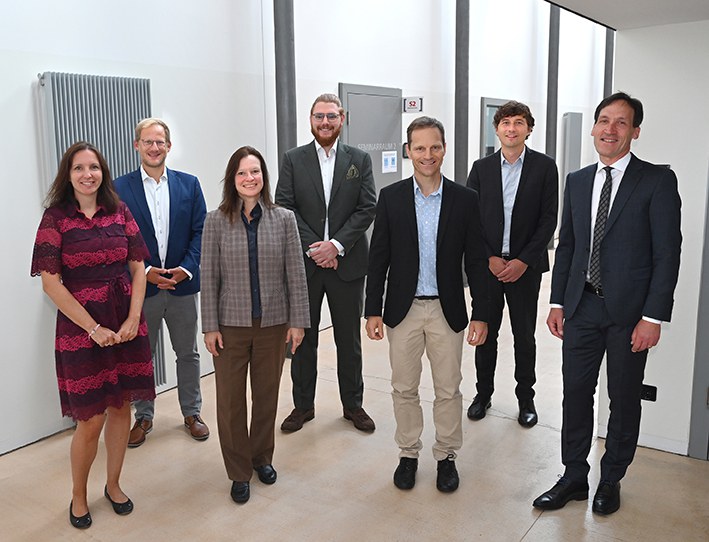Sustainability-oriented investment decisions can contribute to an environmental, resource-friendly, and socially equitable economic system just as much as conscious consumer behaviour. Especially in combination with growing regulatory requirements, sustainability is playing an increasingly important role in the investment process. The science-based innovation project "An ESG-based Investment Case for Absolute Return Funds" between the Liechtensteinische Landesbank and the University of Liechtenstein examines the effects of this structural change on capital markets and investors.
"As part of this project, we want to show how positive environmental and socio-political influences can be supported without interfering with investment policy targets such as return and risk," says Bernhard Schmitt, Head of Equity & Multi Manager Management at the LLB. Existing investment approaches often neglect the impact of massive capital flows towards sustainable investment opportunities. "We want to use innovative methods from the field of artificial intelligence to identify the effects of these capital flows at an early stage and bundle them in an innovative and sustainable fund product. We are very pleased that our project idea has received a positive evaluation from Innosuisse, the Swiss Innovation Agency, emphasising the high level of innovativeness and methodological quality," adds Project Leader Dr. Sebastian Stöckl, Assistant Professor at the Chair in Finance of the University of Liechtenstein. "This is the university's largest Innosuisse project so far, which also demonstrates its relevance to the sponsor."
Rethinking sustainable investment
The basic assumption is that sustainable investment has a positive impact on the environment, society, and corporate culture. Investors who allow sustainability to guide their investment process can make a crucial contribution to shaping the world we live in. Today's capital markets enable investors to provide capital in a targeted manner to sustainable companies. Even if the influence of an individual investor may appear to be limited, the bundling of many investors creates massive market power. This means that if many investors jointly allocate their capital preferentially to environmentally and socially sustainable companies, those companies are able to benefit from more favourable financing conditions. As a consequence, their financing costs fall, and they are able to realise more projects with a positive impact on the environment and society. Conversely, steadily rising financing costs for other companies increases the pressure on them to operate more sustainably as well. "The fundamental idea of the planned innovation project is to construct an investment product that promotes a sustainable economy, while taking account of the differences in returns due to the coordinated redirection of sustainable capital flows," says Dr. Georg Peter, implementation partner of the LLB.
Focus on modern analysis methods
An almost unmanageable abundance of sustainability data from a wide range of data providers and rating agencies is now available alongside traditional financial market data and key corporate figures. To give meaning to this data and draw conclusions from it, alternative data sources and highly developed analysis methods from the field of artificial intelligence will be used. The aim is not only to measure environmental, social, and corporate sustainability more precisely, but also to develop models for reliably forecasting sustainable capital flows.
Know-how made in Liechtenstein
The project has now been kicked off at a ceremony with the project partners and the Office of Economic Affairs as the competent authority. It is a successful example of knowledge transfer from the University of Liechtenstein to the local economy. This benefits not only the project partners, but also especially the LLB's clients and the entire financial centre. "The University of Liechtenstein offers scientific and methodological expertise, while the LLB contributes its financial market experience, entrepreneurial know-how, and market access. This is the perfect mix for a challenging innovation project," concludes Dr. Lars Kaiser, Assistant Professor at the Chair in Business Administration, Banking and Financial Management of the University of Liechtenstein. Earlier this week, the Liechtensteinische Landesbank announced its signing of the United Nations Principles for Responsible Investment (UN PRI). In the view of Roland Matt, Group CEO of the LLB, this cooperation with the University of Liechtenstein sends another clear message on the part of the LLB. "We signed the UN PRI to underscore the special significance of sustainability for our financial investments. This project shows in an exemplary way that we are already putting these principles into practice."
Links: www.uni.li / www.llb.li / www.innosuisse.ch / www.unpri.org






